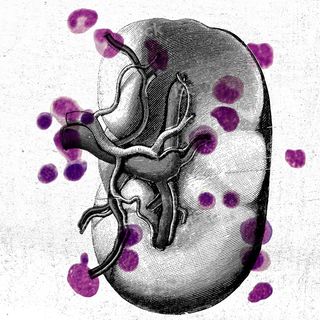
Escapism Is a Way to Cope Under Stress. But It Can Also Become a Tool for Self‑Deception
The need to escape often translates into a constant engagement with the digital world — be it binge-watching or jumping through internet rabbit holes.

A few weeks back, a friend says she made her way through five levels of Candy Crush in all but two hours. It must have been around 2 a.m., a ton of work awaited her, but she found wisdom in matching candy options instead. There are others who prefer watching re-runs a night before an important meeting or test; some plan fanciful holidays in the face of adversity. These anecdotes are not unheard of, for they offer the great escape — habitual distractions offering solace away from the ‘real’ world.
Escaping and avoidance by no means are modern-age phenomena. At the most basic level, escapism is understood as an effort to evade awareness of oneself, one’s beliefs, or the immediate reality that is often disquieting in nature. The psychology of escapism takes into account an important consideration: the desire to escape may be a response to a stimulus, like stress, danger, or adversity, but it also could be a calculated response to emotional survival.
Consider this: at the most visceral level, wanting to escape a threat is a reflex (like when we instantly back away from the road on seeing a car approaching). In the context of the fabled “flight or fight response,” escaping is the equivalent to “flight” — sometimes the easier way out. Biologically, recent research has shown that the flight response is influenced by certain protein levels. The fast skeletal myosin binding protein-C determines the function of the body’s fast-twitch muscles. “These muscles produce sudden bursts of power to sprint into action, jump or lift heavy objects,” ScienceDaily explains.
In an everyday context,instead of reflexive actions, we make use of our cognitive processes — like memory and decision-making — when the risk is long-drawn, has plagued us for a while, or is triggered by an external event. The friend, for instance, chose a savory game of candy crush over the pressure of work. Behavioral psychology experts Michael W. Schlund and Michael F. Cataldo argue in a paper that in Shakespeare’s Macbeth, when Lady Macbeth feverishly washes her hands to remove the stains of blood after murdering King Duncan, it works as a measure of escape from her psychological demons.
“In psychology, escapism is generally defined as a desire or behavior to ignore, evade, or avoid reality,” Carla Marie Manly, Ph.D., a clinical psychologist, tells WebMD. “During traumatic experiences, many individuals naturally ‘escape’ the situation mentally in order to avoid further distress and psychological harm.”
Related on The Swaddle:
Respectfully Disagree: Is Escapism During a Crisis Okay?
Although at the face of it, escapism is associated with procrastination or laziness and may seem irrational. John L. Longeway argues in the paper “The Rationality of Escapism and Self-Deception” that there is such a thing as “practical rationality.” According to him, our entrenched escapism is but a necessary coping mechanism. “When a person must avoid certain facts to avoid succumbing irrationally to despair, or unless it compensates for the effects of an environment in which it is otherwise impossible” for someone to remain healthy, the function of escapism, then makes a lot of sense to counter the overdose of reality.
The benefit of escapism is observed in situations in which a rational person would otherwise succumb to despair, anxiety, loneliness, and even self-harm.Finding moments of levity and clocking out can then provide some reprieve. Psychologist Sigmund Freud opined that a vial of escapism is a necessary element in life: “[T]hey cannot subsist on the scanty satisfaction they can extort from reality.” This resonates with the reality of our times — where unprecedented health and global changes, political turmoil, personal losses make facing life head-on harder than usual. “The need to escape from the limits of our bodies, physical spaces, families, societies, culture and, hell, the solar… For some, escaping altogether will be the only solution,” Ravi Amaratunga Hitchcock writes in Campaign Live.
Arguably, why we want to escape also has an evident flip side to it — we are vulnerable to a dangerous amount of self-deception under the comfortable shadow of avoidance. “The self-deceiver is best interpreted as knowing, but wishing to avoid, the truth,” Kevin Lynch writes in the article “On the “tension” inherent in self-deception.” Harmful manifestations of escapism show up as over-reliance on alcohol, drugs, etc. and can even snowball into psychological disorders.
Most commonly, the need to escape often translates as a constant engagement with the digital world — be it binge-watching or jumping through internet rabbit holes. “[T]he real form of escapism nowadays is the compulsive need to constantly be engaged in living an electronic life of fact-finding, problems solving, video game playing, and personal chit chat,” psychologist Graham Collier wrote in Psychology Today. In a more contemporary, socio-cultural sense, escapism and the construct of fantasy land are also perceived as self-indulgent, or even apolitical. And while there is nothing wrong with spending time recreationally, it might mean avoiding important self-reflection.
“The better we get at distinguishing fantasy from reality,” Jeremy E. Sherman, Ph.D., tells Psychology Today, “the more one can indulge safely in fantasies without distorting our adaptation to and accommodation of reality.”
If the function of escapism is to give us a break from things — ourselves, our work, our lives, even the world — it can easily be taken to the extreme. Escapism, as a cause and effect of something, then doesn’t exist in silos, but perhaps understanding the psychology behind it can help us strike a balance.
Saumya Kalia is an Associate Editor at The Swaddle. Her journalism and writing explore issues of social justice, digital sub-cultures, media ecosystem, literature, and memory as they cut across socio-cultural periods. You can reach her at @Saumya_Kalia.
Related


Andhra Govt. Approves a ‘Magic’ Health Supplement. Locals Believe it Can Cure Covid19
